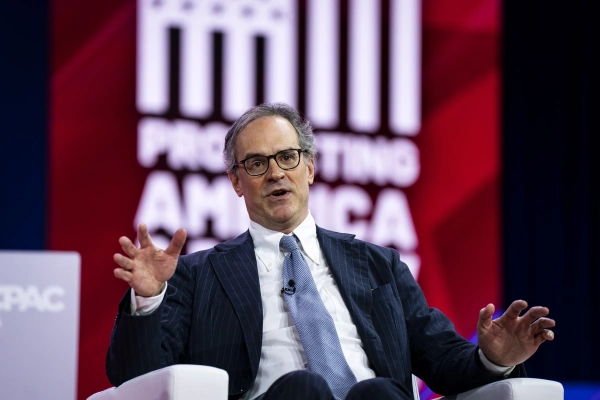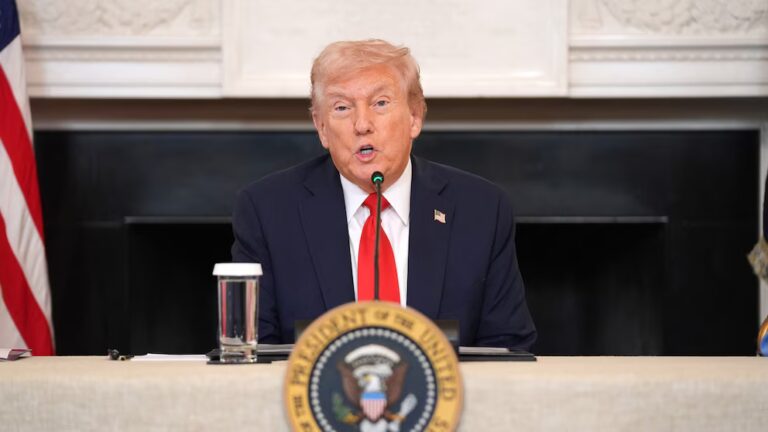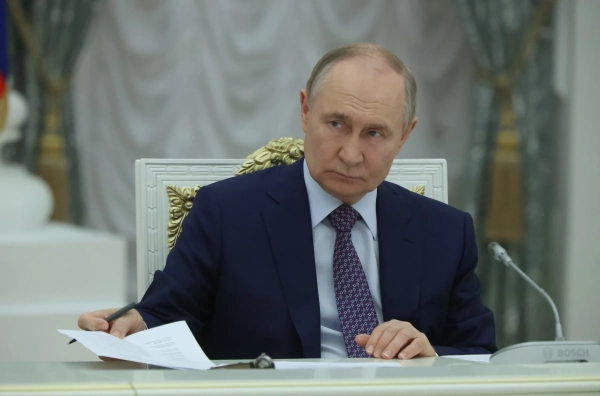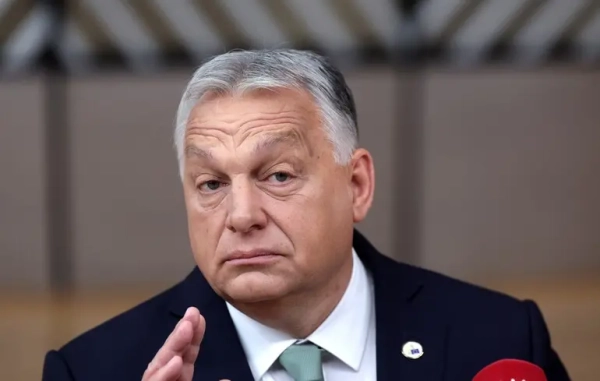
If you’ve been following American politics in the Trump era, there’s a decent chance you’ve heard of “the New Right.” It’s a loose movement of radical intellectuals who share a basic hostility to American liberal democracy. They all think the system is rotten, that it needs to be fundamentally overhauled, and that Donald Trump can be a vehicle for putting something better in its place.
But why do they think that? How much influence do they really have? And what would a response to their rising prominence look like?
In an upcoming episode of Vox’s The Gray Area podcast, I spoke about all of this with Laura Field — a political theorist who spent a lot of time in the conservative intellectual world. Her book Furious Minds: The Making of the MAGA New Right is a fascinating taxonomy of the wild world of far-right thinking.
We talk about who these people are and how they replaced the “old” conservatism with something more aggressive and authoritarian. We also talk about how they are influencing the Trump administration, and why ordinary Americans should care what a handful of thinkers are putting out on obscure Substacks and YouTube channels.
Part of our conversation is transcribed below, edited and condensed for clarity. The full interview contains much more, and you can listen to it on Monday. We’ll update this link with the embed when the episode is out.
And, if you just can’t get enough of Zack and Laura content, you can come to our Vox-sponsored panel at the Liberalism in the 21st Century conference — held in DC on Friday. There’s already a waitlist, so sign up soon.
You’re someone who is liberal but found yourself as a professional academic and intellectual in conservative spaces — and that’s pretty unusual because there tends to be a lot of self-segregation away from that world. What pulled you into it and what was it like being an insider-outsider in the conservative world of ideas?
I wanted to go into medicine and be a doctor in the developing world. I was very, very liberal and sort of a save-the-world type. I had to take some required courses in political philosophy, and one was a wonderful course on ancient political philosophy and early modern thought. It was mind-blowing.
The right today uses this language of being “red-pilled,” where you see through the lies that we are told by the regime. They use this extreme language, but something sort of parallel happened to me, just reading Plato with these really great teachers.
I fell in love with these books and the tradition of political philosophy and literature that these teachers were so good at explaining. My politics didn’t change dramatically, but some of those circles were quite adjacent to the people who were the leaders of the avant-garde of defending Trumpism: the West Coast Straussians, call them the Claremont Institute people.
When that started happening, I was really quite alarmed.
You use “new right” as an umbrella term for all of these different pro-Trump factions. What makes the new Rrght a cogent grouping, not just a random smattering of people who all like Trump? What connects them and what differentiates them from the old right?
I’m talking about the MAGA new right, [in contrast] with the Reagan-Buckley right, or the establishment right, which is propped up by fiscal conservatism (free-market economics), social conservatism (conservative social values), and anti-communism.
The new right turns against a lot of that. Michael Anton, one of these Claremont Institute guys, says that Trumpism and the new right is all about economic nationalism — turning against the free market orientation of the establishment — as well as closed, secure borders. So that’s the anti-immigration strain and America-first foreign policy.
I think that there’s also just a hardcore social conservatism at the core of a lot of this — at least spiritually.
The new right has shared principles: preoccupation with gender, strong support for Trump, a general disinterest in the traditional norms of democratic politics, and a commitment to unremitting culture war against the left. But there are huge divisions. If you were to divide the new right into camps, what would you say the fault lines are?
I have three main camps: the Claremonters, the post-liberals, and the national conservatives. Then I talk also about the hard right, but the hard right travels alongside all three of them ideologically. The hard right is the hardcore, manosphere-fascist types. Each of these groupings are different.
The Claremonters are the West Coast Straussians that I was speaking about before. They are really committed, at least in theory, to the American founding. They have this very grandiose vision that’s beyond even your ordinary patriotism. It’s that this is the best regime of all time. They’re also at the very cutting edge of the culture war. So America is the best regime of all time, but we’ve completely lost the plot. The liberals and liberal way of thinking have taken over to such a degree that we need a counter-revolution. They’re the [type] who defended January 6.
Michael Anton, who you mentioned earlier, is now a Trump administration official, a high-ranking one. He’s one of the key leaders in that faction.
Yeah. And then there’s the national conservatives. They’re a little more vanilla, with just nationalism as their core thing. But it turns into ethno-nationalism in some cases and certainly Christian nationalism. They’re a big tent.
The tensions are clearest when we are talking about the post-liberals, who are the most highbrow of the New Right. They tend to be Catholic intellectuals: people like Adrian Vermeule at Harvard, Patrick Deneen at Notre Dame, and writer Sohrab Ahmari. These are serious Catholics who are more committed to social conservatism and really want to shape the morals of the country in a much more traditional Catholic direction. But they’re also interestingly much more sincere about the left-oriented [redistributive] economics.
The new right as a whole speaks as if they want to help the working class, and create new populist programs. But I think that the people who are closest to Trump haven’t really followed through. They’ve got the tariffs, but otherwise economically, they’re still doing the big tax cuts. They’re still beholden to donors. So that’s been a big fissure, because the post-liberals are almost open to socialism.
A lot of other fissures come in terms of how accepting they are of the hard right. Ahmari has been quite outspoken against the Proud Boys and the manosphere, Bronze Age Pervert and those guys.
I think another interesting divide, which came about just after the election, was DOGE vs. MAGA. DOGE came in and did the destructive part of getting rid of the so-called administrative state. But a big part of the new right wants to harness the state and weaponize it for their own purposes.
Why does any of this matter for our politics?
The knee-jerk reaction to think “who cares” is a natural one, because a lot of these people are bizarre — weirdos. That’s why it’s alarming to see them wield so much power, to see JD Vance have that clout.
I think they have dramatically reoriented the GOP. It’s not just JD Vance who’s some weirdo who’s gotten to the top. It also seems to matter a lot to young people. These kinds of movements can build energy, and young men are influenced by these circles.
A lot of these people I’m writing about are in the intellectual spheres. They’re pretty smart. A lot of them have PhDs, which is no marker of genius, but they have a lot of education and resources available to them. They’re experts in ways that would surprise many people. They know a whole lot. I wouldn’t want to debate some of them on the founding or other questions.
These well-learned people shape the minds of people like Joe Rogan. Ideologically, there is a trickle-down effect. The culture war has a big impact. You see the impact of someone like Christopher Rufo.
You argue that the right operates with an “ideas first” approach, believing that ideas have a tangible, causal impact on politics. Democrats, in contrast, are putting ideas last. You contrast the “coarse brazenness of [the right’s] ideologues and the tepid intellectual and cluelessness and cowardice of so many centrist and liberal leaders both within academia and beyond.”
That is a stinging indictment of the liberal intellectual class. Where are you coming from here? When you say that they’ve failed in contrast to the coarse brazenness of the new right, what do you mean?
Trump has been much more effective in his second term. The Democrats are in a difficult position. They had a very rocky electoral cycle with Biden staying in so long and Harris in this awful position of having to parachute in and not being very well prepared.
I don’t feel like there’s much of a response from the left intellectually to what’s going on. It doesn’t seem to me like the party has much to offer on the ideological front.
It is frustrating as an observer to see that Bernie and AOC were the people who went and toured the country. But I didn’t see more centrist Democrats doing very much. And I still think that’s the case. They seem very shocked and unprepared. And I think that that comes down to a failure of imagination — taking way too much for granted for a very long time. And that’s part of what got us Trump in the first place.
Source: vox.com






